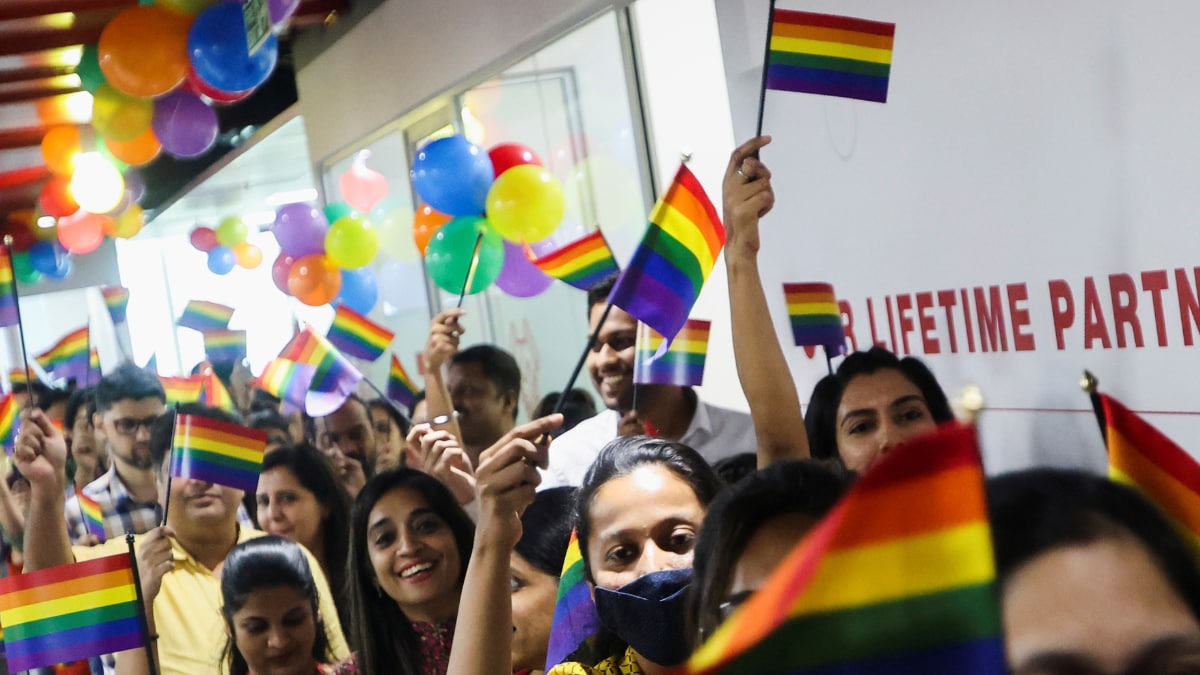The Indian government has officially clarified that there are no restrictions on LGBTQ+ individuals opening joint bank accounts or nominating partners in their relationships as beneficiaries. This significant step comes in response to a Supreme Court order recognizing the legal rights of same-sex couples. This decision signifies a positive shift in India’s approach to LGBTQ+ rights, paving the way for increased financial inclusion and legal recognition.
A Milestone in Financial Inclusion for the LGBTQ+ Community
The finance ministry’s advisory, dated August 28, 2024, specifically states that there are no legal barriers for LGBTQ+ individuals to engage in common banking practices, including opening joint accounts and naming partners as nominees. This clarification eliminates a major barrier faced by the community in accessing essential financial services.
A Historical Context of Discrimination
The historical lack of clarity on the legal status of same-sex relationships in India often led to discriminatory practices by financial institutions. LGBTQ+ individuals faced challenges in opening bank accounts, accessing loans, and even securing insurance policies. The lack of recognition of their partnerships left them vulnerable to financial exploitation and limited access to financial services crucial for their economic well-being.
The Supreme Court’s Landmark Order
The Supreme Court order of October 17, 2023, played a pivotal role in changing the legal landscape for same-sex relationships. The order highlighted the fundamental rights of LGBTQ+ individuals, recognizing their right to equality and non-discrimination. This judgment provided the basis for the finance ministry’s recent advisory, bringing India’s banking system in line with the legal recognition of LGBTQ+ rights.
A Coordinated Effort Between Government and RBI
The finance ministry’s advisory is a significant step, but it’s crucial to note that the initiative stems from a coordinated effort between different government agencies. The Reserve Bank of India (RBI), in 2015, directed banks to include a “third gender” column in their forms and applications, opening the doors for transgender individuals to access banking services. This paved the way for the latest advisory by the finance ministry.
Expanding Financial Accessibility for the LGBTQ+ Community
Following the 2015 order, several banks, including ESAF Small Finance Bank Ltd, have launched services specifically for the LGBTQ+ community. Initiatives such as the “Rainbow Savings Account” offer special benefits and aim to foster a more inclusive financial environment. This collaborative effort between government institutions and the private banking sector demonstrates the potential for meaningful change and progress for the LGBTQ+ community in India.
The Road Ahead for LGBTQ+ Rights in India
The recent clarifications on joint accounts and nominations represent a step in the right direction but are not the endpoint of LGBTQ+ rights in India. The finance ministry has formed a six-member committee to examine broader issues impacting the queer community. This panel aims to address systemic inequalities, ensuring access to goods and services without discrimination.
The Need for Ongoing Support and Advocacy
While this positive development is encouraging, ongoing advocacy and awareness campaigns are crucial to ensuring the full realization of LGBTQ+ rights. The community continues to face various forms of discrimination and needs ongoing support to combat bias and create a more inclusive society.
Take Away Points
- The finance ministry’s advisory on joint accounts and nominee nominations signifies a key step towards financial inclusion for the LGBTQ+ community.
- This step is a direct consequence of the Supreme Court order recognizing the legal rights of same-sex couples.
- The RBI’s previous initiative to include a “third gender” category in bank forms further paved the way for this positive change.
- These changes, along with the formation of a committee to examine broader LGBTQ+ rights, indicate a progressive direction in India’s policies.
- While celebrating these strides, the need for ongoing advocacy and awareness-building initiatives remains critical to achieve full equality and ensure the rights of LGBTQ+ individuals are protected and upheld.




